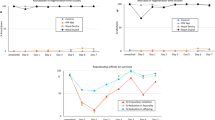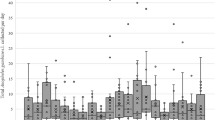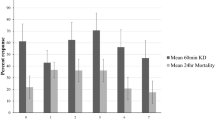Abstract
MUIRHEAD-THOMSON1 has reported on the use of an experimental hut with a light-trap fitted into the window, as a method of assessing the efficiency of the residual insecticides D.D.T. and ‘Gammexane’ against Anopheles gambiæ in Africa. Similar experiments have recently been conducted against A. maculatus, the principal vector of malaria in Malaya. Unlike gambiæ, maculatus normally leaves houses at or before dawn to rest out of doors by day, and nearly all those captured in an untreated experimental hut were found in the light-trap in the morning.
This is a preview of subscription content, access via your institution
Access options
Subscribe to this journal
Receive 51 print issues and online access
$199.00 per year
only $3.90 per issue
Buy this article
- Purchase on Springer Link
- Instant access to full article PDF
Prices may be subject to local taxes which are calculated during checkout
Similar content being viewed by others
References
Muirhead-Thomson, R. C., Nature, 163, 109 (1949).
Abbott, W. S., J. Econ. Ent., 18, 265 (1925).
Author information
Authors and Affiliations
Rights and permissions
About this article
Cite this article
WHARTON, R., REID, J. D.D.T. and ‘Gammexane’ as Residual Insecticides against Anopheles maculatus in Malaya. Nature 165, 28–29 (1950). https://doi.org/10.1038/165028b0
Issue Date:
DOI: https://doi.org/10.1038/165028b0
This article is cited by
Comments
By submitting a comment you agree to abide by our Terms and Community Guidelines. If you find something abusive or that does not comply with our terms or guidelines please flag it as inappropriate.



